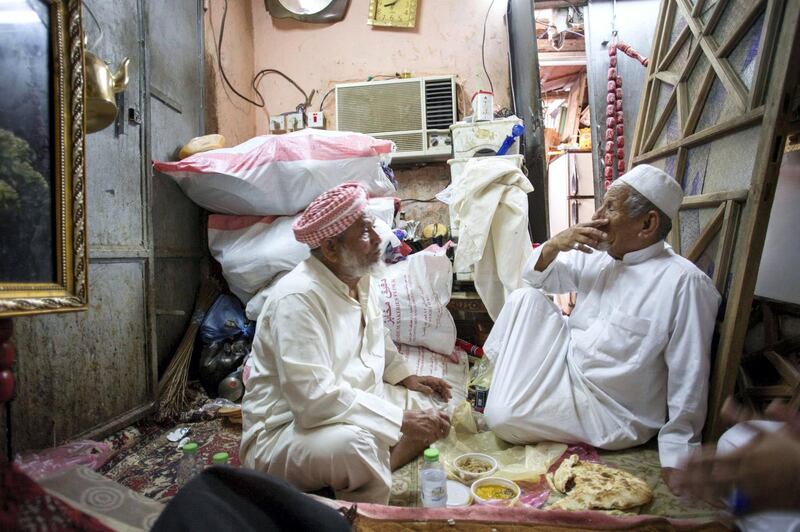A major initiative supporting Arab art and culture in New York has been impacted by the continuing public furore around Jamal Khashoggi, the Washington Post columnist who was allegedly murdered in the Saudi consulate in Istanbul.
The ten-day Arab Art & Education programme, which opened on Sunday, brought together twelve New York cultural organisations, including the Metropolitan Museum of Art, MoMA, the Brooklyn Museum, and Columbia University, in talks, seminars and exhibitions exploring Arab art and culture. The event was put together by the cultural exchange organisation Edge of Arabia, now based in New York, that has been instrumental in developing the Saudi art scene. Some of the programming was funded by the Misk Art Institute, part of the non-profit Misk Foundation set up by Crown Prince Mohammed bin Salman of Saudi Arabia.
Columbia University announced on Thursday that it was cancelling its planned talk with the Saudi artist Ahmed Mater, one of the founders of Edge of Arabia and the director of Misk.
This comes on the heels of three other organisations distancing themselves from the event. The Metropolitan Museum of Art said it would not accept funding for the closed-door seminar on abstraction they had organised. The funding, which totalled nearly $20,000, came from the Misk Foundation. The Brooklyn Museum of Art likewise announced it would not use funding from Misk for its exhibition “Syria, Then and Now: Stories from Refugees a Century Apart,” which opened last weekend as part of the Arab Art & Education programme. The Met and the Brooklyn Museum were the only two organisations that had received funding from the foundation. The Middle East Institute, a think tank based in Washington that was involved in organising the events but was not a host of any particular talk or exhibition, announced that it would no longer participate last Friday.
“We were of course disappointed to learn of Columbia University’s decision to postpone this event," says Stephen Stapleton, director of Edge of Arabia. "There is a great deal of interest in Ahmed Mater’s work as an artist here in New York, and many people, especially students and faculty, were looking forward to hear him talk.
"Having said that we totally understand and sympathise with Columbia University’s decision to postpone the event, given the current polarised atmosphere and media landscape."
Other events have been going ahead as planned. On Monday, the Kuwaiti artist Monira Al Qadiri gave a lecture-performance at the Museum of Modern Art, and the Palestinian artist Samia Halaby is due to speak at the Guggenheim Museum next Tuesday.
Investment in culture has been a flagship achievement of Prince Mohammed bin Salman’s modernising reforms. He oversaw a lifting of restrictions on art and culture in the kingdom, most notably in allowing cinemas to open, and has used his foundation, Misk, to promote Arab art abroad. Misk is a new partner for the art fair Art Dubai and supported Saudi Arabia’s first participation in the Venice Biennale for Architecture this year.
The appointment of Mater as director of Misk was indicative of the change in tenor in the kingdom. The Abha-born artist’s work had been critical of some Saudi policies, including the country’s reliance on oil. For years, though well-known abroad, Mr Mater never had a solo show in Saudi. This February, his solo show spread out across the new premises of the King Abdulaziz Economic City, and he has assumed a role of representative artist abroad. A major show of his photographs of Makkah travelled this past year to the Smithsonian in Washington, DC and the Brooklyn Museum.
The cultural week has been coordinated by Edge of Arabia, which Mr Mater, the Saudi artist Abdulnasser Gharem and the British artist Stapleton founded in 2003 It was long one of the most visible anchors of the Saudi contemporary art scene, and toured Saudi art abroad, in a London space it kept for a while and in itinerant touring programmes. It also helped support Arab initiatives in New York, such as the Armory Show Focus, a programmed section of the flagship New York art fair.
In a statement, Columbia said it will reschedule Mater’s talk at “another time in the near future that is more conducive to the academic dialogue on campus that is the purpose of the lecture”.
Related links
[ Exploring how the Arab world ‘is the origin of so much we take for granted in the West’ ]
[ Art Dubai to partner with Saudi Arabia’s Misk Art Institute ]
[ The Saudi art scene is keeping up with the changes of its country ]






